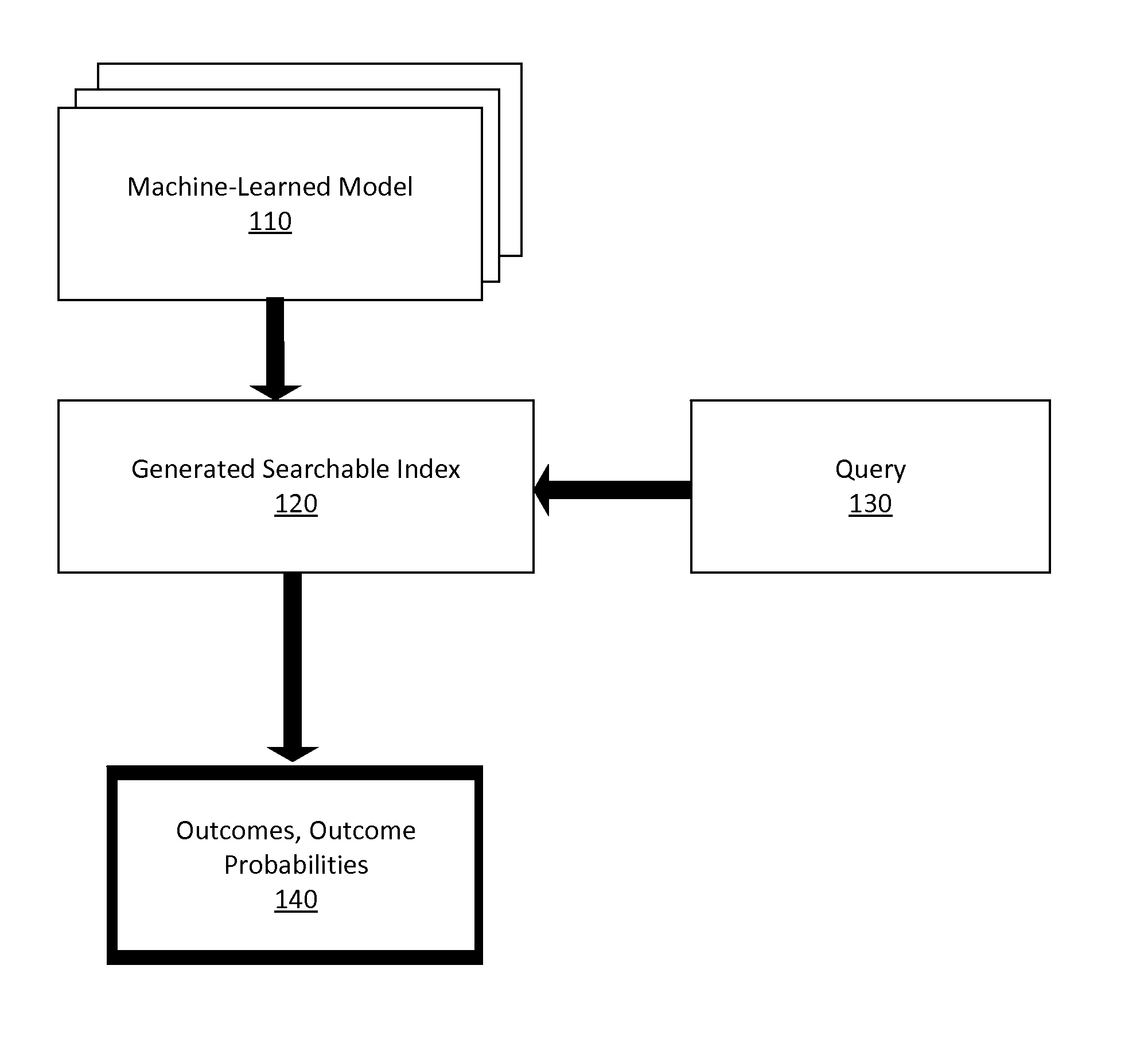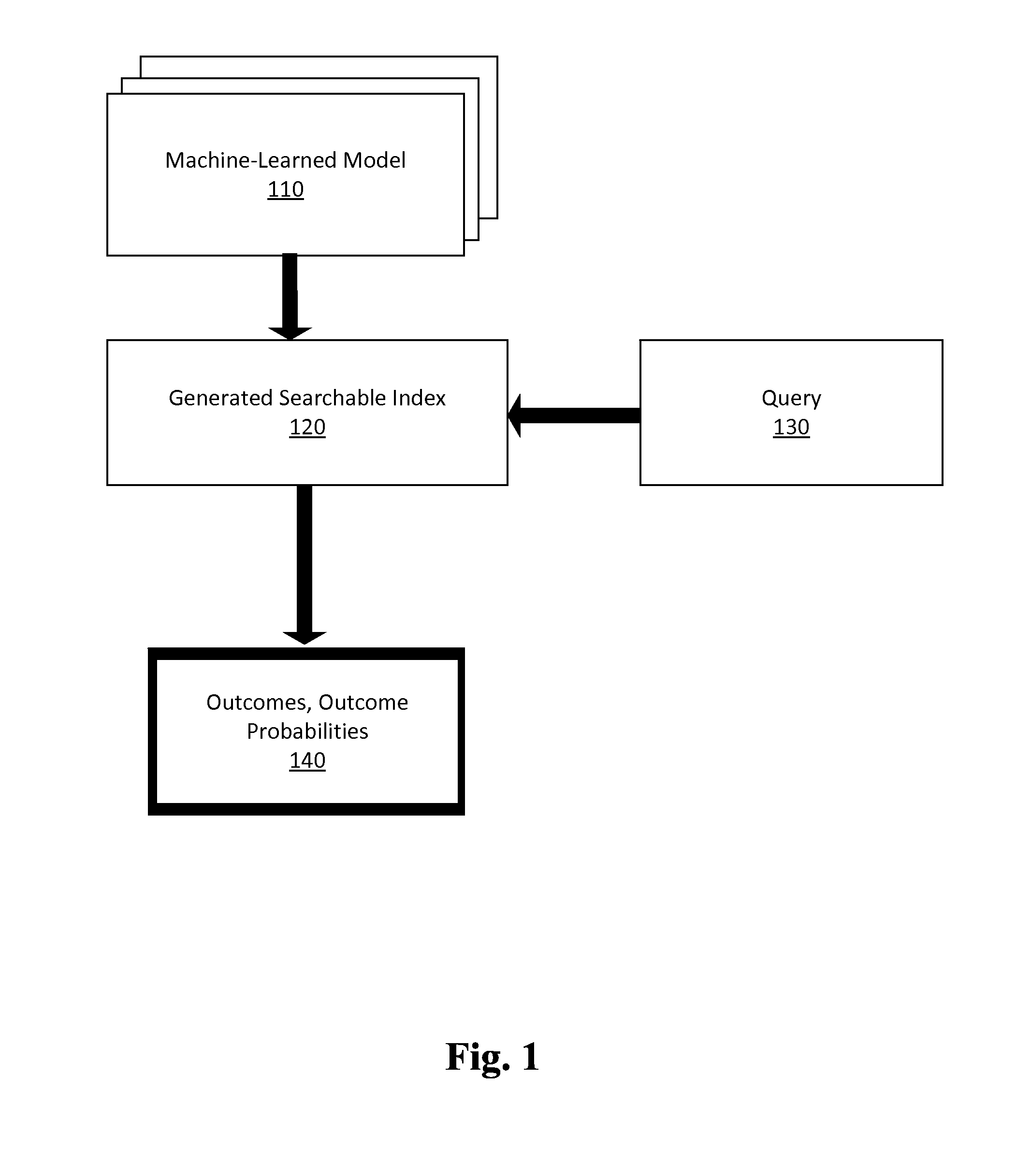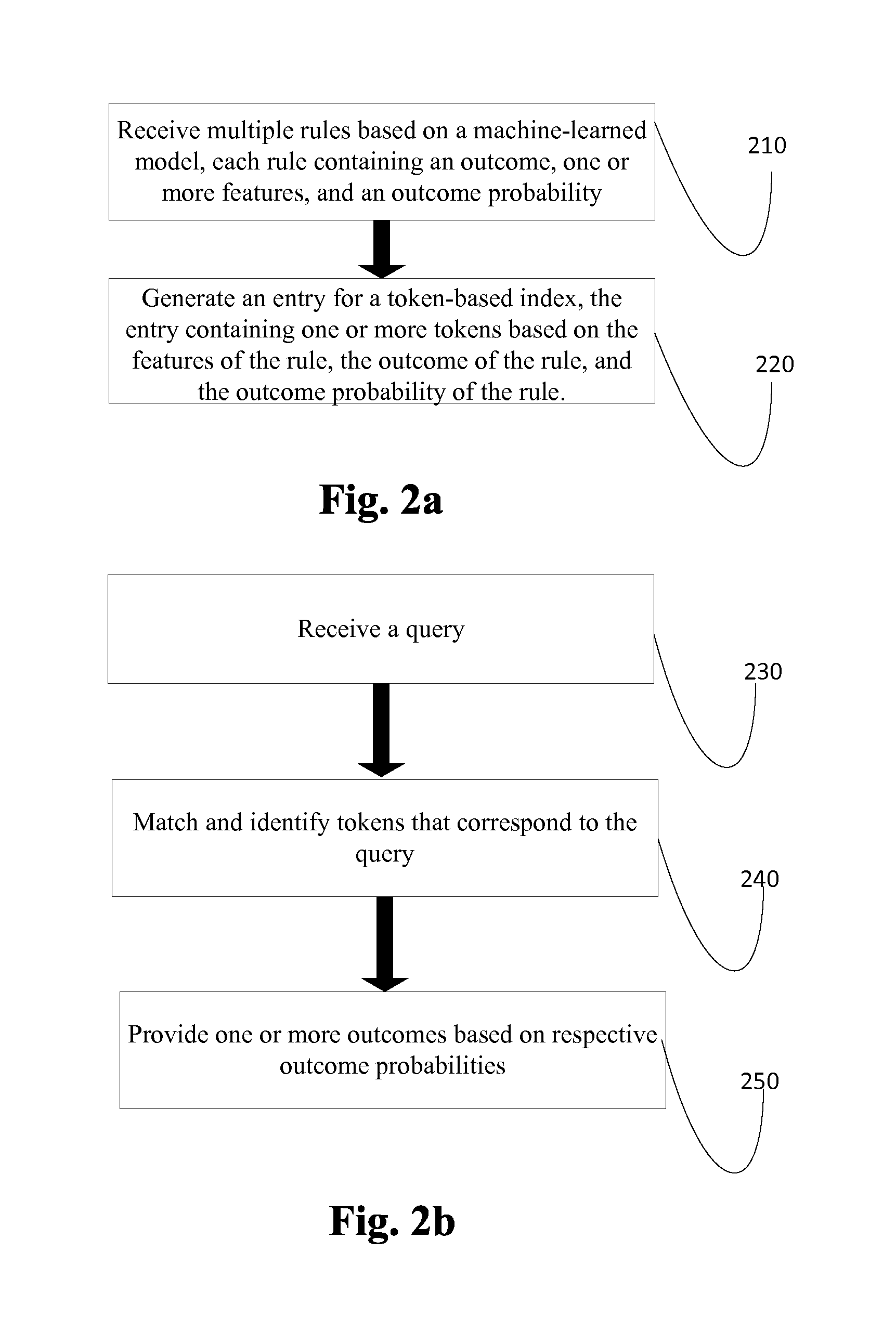Searchable Index
- Summary
- Abstract
- Description
- Claims
- Application Information
AI Technical Summary
Benefits of technology
Problems solved by technology
Method used
Image
Examples
Embodiment Construction
[0010]According to implementations of the disclosed subject matter, a searchable index may be generated based on rules derived from a machine-learned model. In this way, the superior intelligence and logic of a machine-learned model can be embodied in an easily-searchable index. Standard information retrieval tools can be used to efficiently retrieve data using the index. This can compare favorably to a system that has separate information retrieval and machine-learned ranking stages by eliminating the loss of candidates during the information retrieval stage that would otherwise be highly scored by the machine-learned model. Overall, more candidates can be more accurately ranked in accordance with an implementation of the disclosed subject matter.
[0011]The techniques disclosed herein may be applied to machine-learned models generated using supervised learning data such as labeled examples. The labeled examples may be input into a machine learning system and the output from the mach...
PUM
 Login to View More
Login to View More Abstract
Description
Claims
Application Information
 Login to View More
Login to View More - R&D
- Intellectual Property
- Life Sciences
- Materials
- Tech Scout
- Unparalleled Data Quality
- Higher Quality Content
- 60% Fewer Hallucinations
Browse by: Latest US Patents, China's latest patents, Technical Efficacy Thesaurus, Application Domain, Technology Topic, Popular Technical Reports.
© 2025 PatSnap. All rights reserved.Legal|Privacy policy|Modern Slavery Act Transparency Statement|Sitemap|About US| Contact US: help@patsnap.com



